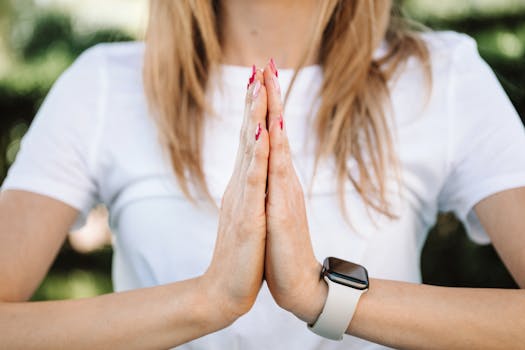
Harnessing Mindfulness and Wellness Tech: The Future of Personal Well-Being
Takeaways: Mindfulness and wellness technology can significantly improve mental health and overall well-being. Meditation apps, sleep trackers, and other digital tools help individuals cultivate mindfulness, reduce stress, and enhance sleep quality. By integrating these technologies into daily routines, users can achieve a balanced and healthier lifestyle.
In today’s fast-paced world, the importance of mental and emotional well-being cannot be overstated. As stress levels rise and the demands of life become more complex, individuals are increasingly turning to technology as a solution. Mindfulness and wellness tech, such as meditation apps and sleep trackers, have emerged as powerful tools to aid in personal well-being. This article explores the various ways these technologies can help foster mindfulness and promote a healthier lifestyle.
The Rise of Mindfulness and Wellness Tech

Meditation apps like Headspace, Calm, and Insight Timer have gained immense popularity, offering guided meditations, breathing exercises, and mindfulness practices at users’ fingertips. These apps cater to both beginners and seasoned practitioners, making it easy for anyone to start their mindfulness journey. Furthermore, many of these apps incorporate features that allow users to track their progress, set goals, and receive daily reminders, reinforcing their commitment to regular practice.
In addition to meditation apps, sleep trackers have revolutionized the way we understand and improve our sleep quality. Devices like Fitbit, Oura Ring, and various smartphone applications can monitor sleep patterns, providing insights into sleep cycles, duration, and overall sleep health. By identifying factors that affect sleep quality, users can make informed adjustments to their bedtime routines, ultimately leading to better rest and improved cognitive function.
The Benefits of Mindfulness and Wellness Tech

Research has shown that regular mindfulness practice can reduce stress, anxiety, and depression. By utilizing meditation apps, users can cultivate a daily habit of mindfulness that promotes emotional resilience and mental clarity. Studies indicate that even short sessions of guided meditation can lead to significant improvements in mood and overall mental health.
Moreover, sleep trackers provide valuable insights that can help users understand their sleep patterns better. Poor sleep quality is linked to various health issues, including decreased cognitive function, mood disorders, and weakened immune response. By analyzing data from sleep trackers, individuals can identify trends and make adjustments to their habits, such as reducing screen time before bed or creating a more conducive sleep environment.
Another benefit of mindfulness and wellness tech is the sense of community it fosters. Many meditation apps offer social features that allow users to connect with others, share experiences, and participate in group meditations. This sense of belonging can further enhance motivation and commitment to mindfulness practices.
Integrating Mindfulness and Wellness Tech into Daily Life

- Start Small: Begin with short meditation sessions, even just five minutes a day. Gradually increase the duration as you become more comfortable with the practice.
- Set Reminders: Use your app’s reminder feature to prompt you to meditate or engage in mindfulness exercises regularly. Consistency is key to developing a habit.
- Track Your Progress: Take advantage of the tracking features available in meditation and sleep apps. Monitoring your growth and improvements can motivate you to continue.
- Create a Relaxing Environment: Designate a quiet space in your home for meditation and relaxation. A calming environment can enhance your mindfulness experience.
- Engage with Community: Join online forums or groups within your meditation apps to connect with others on a similar journey. Sharing experiences can provide support and encouragement.
Conclusion







